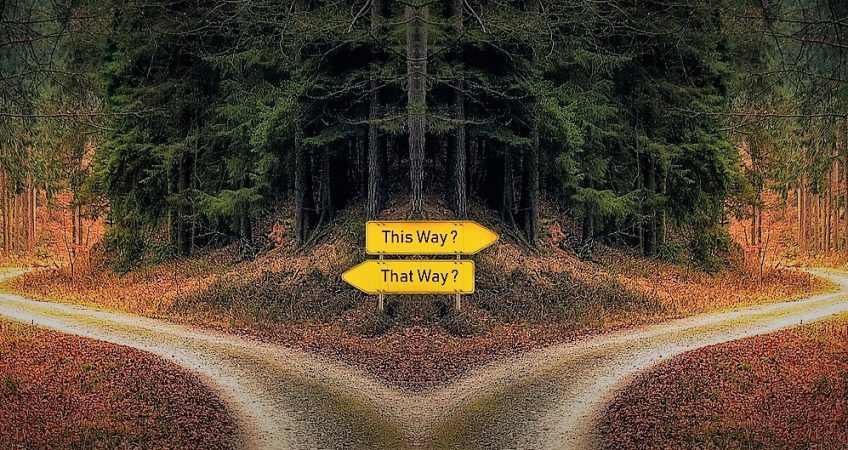Where does free will?

That is, if it is true that in the Bible there is room only for the willful servant, when is it that we have free will? We are all puppets and God pulls the strings? Or we can decide something too?
It is good here to make a clarification and distinction between two meanings, what in the last few centuries it has been called freedom of action O representation and what from the beginning of Christianity took the name of free will. Agostino, Luther, Calvino, and others have spoken of free will in two senses, the first unimportant, the second very important. But the expression free will has always led to a lot of confusion, so it is good to express yourself in two different ways.
The freedom of action it's about human beings. All human beings are free architects of what they do, of their daily decisions, their choices and behaviors. In fact, they give an account to God of their work and behavior, be it righteous or sinful. Like Adam who sinned, us too now, and glorified believers whose grace has been confirmed, we are responsible for our sins. The believers, within which the Holy Spirit came to dwell after his conversion, despite being sanctified and abandoning their sinful behavior, they still live in a body of sin and it may happen in the course of their life that they will make decisions that are not too straightforward, because they are still sinners in this life, but this does not affect salvation and election. The complete liberation of sin, it will happen when Christ returns and sets us free.
The apostle Paul explains, in Romans 7:14-25, how difficult it is to reconcile our being sinners into one “body of death” with the Law of God,:
We know in fact that the law is spiritual; but I am carnal, sold as a slave to sin.
As, what I do, I don't understand it: in fact I don't do what I want, but I do what I hate.
Now, if I do what I don't want, I admit that the law is good;
then I'm not the one who does it anymore, but it is the sin that dwells in me.
In fact, I know that in me, that is, in my flesh, does not live in any good; because the will is in me, but the way to do good, no.
In fact the good I want, I do not do it; but the evil that I do not want, that I do.
Now, if I do what I don't want, I am no longer the one who does it, but it is the sin that dwells in me.
I am therefore under this law: when I want to do good, evil is in me.
In fact, I am pleased with the law of God, according to the inner man,
but I see another law in my members, that fights against the law of my mind and makes me a prisoner of the law of sin that is in my members.
Unhappy me! Who will free me from this body of death?
Thanks be given to God through Jesus Christ, our Lord. So then, I with my mind I serve the law of God, but with the flesh the law of sin.
And it is thanks to Jesus Christ that our sins are forgiven while continuing to dwell in a sinful body.
The free will, instead, it is about God and was defined by early Christian theologians, such as the ability to choose between all the moral options a situation offers, and Augustine argued against the majority of Greek scholars that original sin took away our free will in this sense. We have no natural ability to discern and choose the ways that lead to God because we have no natural inclination towards God.; our hearts are filled with sin and far from our Creator and only grace and regeneration can free us from this bondage. This is what the apostle Paul taught in Romans; only the person freed from sin chooses the right. A permanent love of righteousness, that is, an inclination of the heart to the way of life that pleases God, it is an aspect of the freedom that Christ gives (Giovanni 8:34-36: Galati 5:1, 13).
It is worth noting that will is an abstract concept, then. My will is not when I choose to move a hand, go get a coffee, to go to sleep, etc., (freedom of action) because it is precisely I who choose to act and move. Freedom, in theology, it is understood in the attitude we have towards God, the inclination to be saved, and we can't have faith and believe if we don't come “touched” yes he, if he doesn't decide it, if it does not give us “a new heart by replacing it with a stone one, that we have by nature” (Ezekiel 36:27).